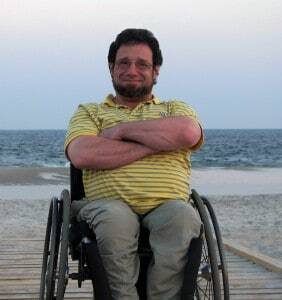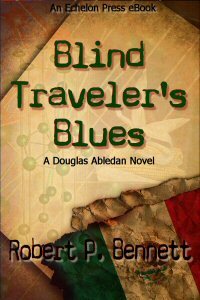Thanks to everyone who joined the conversation on the various stages of a creative writing project. That post aroused interest from fiction writer, Robert Bennett, who read (and commented) on the post and offered to share his insights on writing fiction. As fiction is a genre with which I’ve had no experience (little as a reader and none as a writer) I welcomed Robert’s post and am pleased to share it with you here.

What is Fiction?
Some people believe the world around us is illusion. They think the things we see, feel and hear are merely ideas our minds create. If this is true, each experience we think we have, and that writers write about, is fictitious. Others believe everything is reality. Our minds don’t really imagine anything. If one follows this line of thinking there is no such thing as fiction. Instead, what we call fiction is really an amalgamation of all our experiences, all our thoughts, all our dealings with other people.
Humans like to think of themselves as creative creatures. In fact, anthropologists say one of the chief traits separating humans from other animals is our ability to be imaginative, to invent tools and ideas to suit our needs. But, what if this isn’t true?
When crafting a story where do a writer’s ideas come from? Do they come from some outside source we pull into ourselves and mix in a creative manner? Or, do the ideas for our stories really only come from inside of us, our experiences, thoughts, feelings and encounters with other people?
When crafting a story a writer’s first job is to create characters to fill the world of his story. To make the story believable, and to draw reader’s interest, the characters have to be as fully developed as possible. We give them a physical description. We give them a job. We even imbue upon them interests and hobbies. Where do all these things come from? Simply put, they come from the world we live in. The real world.
Twenty years ago I began my writing career as a journalist. I wrote about technology, sports, politics; almost everything. Where did I get the material for my articles? Mostly, I interviewed sources. During this process I amassed a great deal of information. Some of it I saved in files. Much of it found a home inside my head. So, when I decided to turn my efforts to “fiction” it seemed only natural to use some of the material I had learned over the years to create my characters and my world.

My Blind Traveler mysteries began after I’d written an article about a piece of technology to help a blind person navigate his environment. After extensive research about the device, I wanted to explore what would happen if the person using it suddenly found it malfunctioning.
First, I created my protagonist, giving him a job in the world of computers, patterned after someone I know. Then, I gave him an interest in architecture and music, two of my personal interests. I put him in a world under constant threat by earthquakes because, in the “real” world, at the time our planet seemed to be experiencing a major uptick in seismic activity.
Finally, I crafted a situation where, because of the technological malfunction, my character would literally stumble upon a murder about to take place. Is this fiction or is it an extension of reality? I’ll let you decide. I’m interested in your thoughts on this. Please leave a comment here or send me your feedback directly to RBennett@EnablingWords.com.
For more on Fiction see the Blind Traveler’s blog at http://abledan.wordpress.com/. For more on Robert Bennett and his books, visit his website.
Please share your thoughts and experiences on writing fiction.

Pingback: warp_net_site
i am content writer and sometimes when applying to jobs i saw something like looking for fiction writer but i didn’t know what the client was looking for exactly. Thanks very much for this article now everything is clear in my mind.
I’m puzzled that you ask if your novels are fiction, or an extension of reality. The events didn’t actually happen, so they’re not non-fiction. And all fiction is an extension of reality. Even the most abstract, theoretical science fiction has some basis in reality (the characters act like real people do, etc.).
I love reading a fiction only if it seems reasonable and acceptable. This post gave me a great understanding of what is happening behind a fictional story. Thanks for sharing this great post!!!
Very thoughtful post. I hadn’t considered fiction writing as a compilation of all our life experiences, but you make a persuasive case. Maybe that’s why I’ve never taken to the science fiction genre. It’s fiction, but it isn’t real so I immediately have a suspension of disbelief. Now I know better why.
Thanks for joining us here again on the blog, Jeannette. It’s always nice to hear from you.
Yes, before reading Robert’s post, I hadn’t really thought of fiction being a compilation of reality. It’s logical that it is, but until someone who’s doing it actually puts it into words, we don’t think about it.
That’s what I really love about blogging, and about the community on this blog. We have developed a forum to discuss things we may not otherwise have thought about before. Lanre’s blog is great for that, too. Get’s you thinking!
Hi, I’ve given you the Versatile Blogger Award — please come onto my site to pick up your award! http://thedooverdiva.com/
Click here to read more about this award: http://versatilebloggeraward.wordpress.com/about/
What a delight, Hilary! I’m so thrilled that you find the posts on my blog inspiring.
It’s been quite the process over the past three years of building this blog and I am really pleased with the active readership that has resulted. Your comments, and the comments of every visitor to this blog are important to me.
I try to keep the topics broad enough to appeal to the reading public and focused enough to inspire and help writers in their professional development. Cheers!
Thanks, Doreen, for presenting such an interesting guest blogger. I enjoyed reading Robert’s take on story development. I also start with the characters; however, sometimes they run amok and have to be reigned in half way through the story! I’ll be looking forward to the next post by this author.
Thanks for dropping by the blog, Susan. It’s always great to have new authors visit and share their take on writing.
I have an awesome post lined up for next week with a guest author who will share his take on crowd-funding, so stay tuned!
The art of writing is as much a gift as it is a created ability. Our lives are full of situations and circumstances that certainly can, and do, give us the material needed to write good prose, a story or a novel. The challenge is the in the desire and interest to start and complete the process. I have always admired anyone who has the courage to write and complete any work no matter the size.
Hi Susan: Thans for your comment.
I like that phrase, “created ability.” I guess that’s what I’ve achieved with my writing. I’d never dreamed of being a writer, but a twist in my career led me down that path, and it seems … I enjoy it and do quite well at it. So, I guess I’ve created the ability to write and write well. Sure beats the 9-5 treadmill.
Thanks to Catarina, Satinka and Irene for once again joining us here on the blog.
I’m sure Robert will be back to share his thoughts on your comments.
A number of people have commented that they like the research part of writing best. While I wouldn’t say that I like it best, it is equal to the actual writing. I don’t think I have a literary novel in me, but I am seriously considering using my extensive research into the fur trade era to write an historical novel for young people — perhaps when I complete my eighth history book, which I am currently working on.
Wonderful analogy to “layer” the storyline. Reminds me of PhotoShop!
Great article Robert!!
Like you I started out as a journalist. Have since lived and worked all over the world.
A long time ago on a beach I decided that when I get old I will write a best seller based on what I have experienced with leaders of politics and business – and privately in the jet set. Just change names, details and let my imagination flow.
Hence firmly agree with you when you say that “what we call fiction is really an amalgamation of all our experiences, all our thoughts, all our dealings with other people”.
Like you, I will have to create the charachters with the multitude of things that entails and a plot that tickles the reader.
Have a feeling re-living everything I have done will make old age great fun. And on top of it I will create and sometimes amuze yourself with letting events unfold in different ways. And if I’m ill or just suffering from old age time will fly since Icompletely forget about evreything when I’m involved in my writing.
Did someone say CHOCOLATE?? Can I have some, please??
Diane… I’ve never been a fan of paper so my boooks are ebook only at this point….but I hope you pick them up. 🙂
Bindhurani… I’m not sure I agree with the term ‘mundane things.’ Life is about learning. How can learning about anything ever be mundane?
Lanre…Thanks for giving me a new term to use (reality extension). I love it!
A.K… I usually let my characters and my story define their own premise and themes. It works out better if I don’t push my own ideologies onto them. Sometimes they can be nasty about that 🙂
Thank you all for your comments
Thanks so much to AK, Lanre, Bindhurani, and Susan for returning to the blog and for offering insights about the fiction writing process.
I’m sure Robert will be around soon to add further insight to his post.
As as writer, I agree that character is essential for the fiction to be believable, and in fact I usually start with a character, but not always. Setting for me is really important, and that’s where the research comes in also. I totally agree with you Robert about it being a really enjoyable process. I also think it was a very insightful way to contradict the adage of ‘write what you know’. Again I agree with you, though certainly most writer’s do draw on their own lives, and change things around enough so that ‘real people’ aren’t recognizable.
The other important aspect of a novel that you don’t mention is theme or premise. Personally I don’t start with that , but I know many writers that do. But then, we’re talking about a whole other blog!
Thanks so much for writing this -I really enjoy hearing about another writer’s process. Your novel sounds fascinating, and a unique set up. I will track down a copy.
Hi Robert,
I don’t write fiction but I have read lots of fiction or reality extensions as you call it. I guess reading fiction is just like watching a movie. They are both extensions of our reality, things that happen or that could happen to anyone. Perhaps this is why many of us find it hard to drop such books after reading the first few pages. The more “realistic” a fiction book is, the more interesting it will be because we, the readers would be able to relate the story within to life itself.
I love the way you laid out this post, it really gives fiction a whole new perspective.
The article gives a lot of inside information about your writing process. Some of which I can use in my blog writing. I love to write about mundane things of life. My writings are always an ongoing learning.
sometimes, I can feel the flow of words and sometimes not. How can you make the language flow effortlessly? While writing this post how many times you re-wrote?
Hi Robert,
I am not a writer and one thing I have always wondered is what you do first. It makes sense although I would not have thought of it to develop the characters first.
That is so not fair Doreen, I love chocolate…lol
you know, I just realized that both of you (Robert Bennett) and Robert Sawyer both have the same first names and like Mr. Sawyer you both like the research aspect to writing which is something I can definitely understand and relate to.
I wish that I were gifted in writing, but the reality is that while I love the researching of different topics, I have a difficult time being creative….it’s a good think that I love reading as much as I do ^-^.
I intend to keep reading your thoughts on writing ( in the hopes that I might catch the bug) because it is interesting and fully intend to go to my public library to read your book “Blind Traveller Blues”.
I
Thanks for dropping by the blog again, Diane. It’s always great to hear your perspective.
Like Robert B, I love the research stage of a project. Particularly when it’s as tasty a project as my chocolate book! 🙂
This is a fascinating post made more so considering that not that long ago I had a chance to go to the book launch of Robert Sawyer’s new book.
Listening to you as you talk about the process and in my mind “listening” to Mr. Sawyer talking about the way he does things, makes me realize – once again – writing is not easy, it is indeed a process that takes time,patience and knowing your subject.
I would love to ask you a couple of questions if I may?
1. How long do you research your “story” before you begin to write?
2. Which part of the process of writing do you like the best or the least?
Thank you for helping me once again learn more about writing… very enjoyable!
Hi Diane,
Thanks for the comment. I agree with both you and Robert Sawyer, writing is not an easy thing. I spend an unseemly amount of time trying to a)figure out what to write b) figuring out how to write it and c) doing the research to back up my writing. I usually don’t put fingers to keyboard until I have a pretty good idea what I want to write and, with some teeking, how I want to say it. many times though I struggle with the order of scenes or the tone of dialogue. To answer your other question, my favorite part of the process is the research. I’ve always believed the adage shouldn’t be ‘write what you know’ but should instead be ‘write what you can find out about.’ Perhaps this is one reason I’m not a big fan of the term ‘fiction.’
Most of my fiction ideas have come from waking images that start to play out in my mind over and over. I agree that character development is one of the most important apsects of good fiction. When a story feels hollow, it’s usually because the author and reader aren’t totally invested in the character. Mostly, I like to think of fiction as a careful layering of elements. I suppose that’s what we commonly refer to as “the craft.”
Jeri,
I like your idea of ‘layering’ elements to create a story. Indeed every story is comprised of many elements layered one on top of another.
Thanks so much for your thoughtful comment, Jeri.
Perhaps there is more “layering” in the crafting of fiction, but I do use the same process of mulling things over in my mind for non-fiction as well. And as you say, when we’re not totally committed to what we are writing, it can certainly show in the lack of quality that results. Good writing takes time and effort, whether we’re talking fiction or non-fiction.